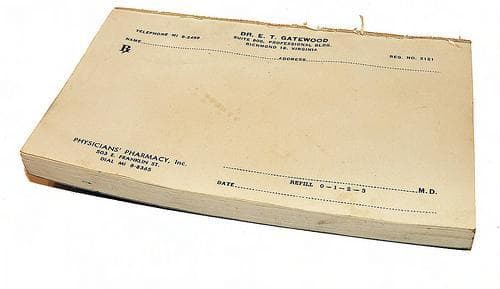Advertisement
New Powers, Like Writing Prescriptions, For Nurse-Midwives

This just in from the governor's office:
Governor Deval Patrick today signed House Bill 3815, “An Act Relative to Enhancing the Practice of Nurse-Midwives.” The legislation authorizes nurse-midwives to issue written prescriptions and order and interpret tests and therapeutics, expanding access to nurse-midwifery care for more women in the Commonwealth.
“I am proud to sign this bill that recognizes the growing trend of nurse-midwifery in Massachusetts by giving women more flexibility in choosing their health care, while maintaining the safest practices,” said Governor Patrick.
The Department of Public Health (DPH) will be charged with registering nurse-midwives to issue prescriptions. DPH will work jointly with the Board of Registration in Nursing and the Board of Registration in Medicine to authorize controlled substances for which nurse-midwives may be certified.
The legislation will eliminate the requirement of nurse-midwives to practice as part of a team that includes a licensing physician with admitting privileges. Instead, nurse-midwives will be required to practice within a health care system and have clinical relationships with obstetrician-gynecologists that will provide consultation and referral.
“The safe and cost-effective care nurse-midwives provide is well-known in our largest cities, but is not available to all women in Massachusetts,” said Kathryn Kravetz Carr, a certified nurse-midwife and member of the American College of Nurse-Midwifes. “This law removes an important barrier to all women having access to nurse-midwifery care. The Massachusetts Affiliate of the American College of Nurse-Midwives applauds Governor Patrick and the Massachusetts legislature for their support of better health care for Massachusetts women and their babies."
Finally, the legislation authorizes nurse-midwives to order and interpret tests and therapeutics in accordance with applicable regulations and requires that nurse-midwifery care be consistent with the standards of care established by the American College of Nurse-Midwifes.
“With this law, we can improve the safety of women and children while keeping health costs within reason," said Senator Richard T. Moore. "It offers a safe, healthy option for more new mothers to consider.”
"For many years, expectant mothers in Massachusetts have received outstanding care from dedicated nurse-midwives,” said Representative Jeffrey Sánchez. “This new law is a crucial step forward in increasing access to care for women across the Commonwealth, particularly the underserved and vulnerable patients who often choose to seek care from nurse-midwives.”
The Massachusetts Medical Society, not surprisingly, wasn't too keen on the proposal. Here's a Jan. 19 letter from MMS President Dr. Lynda Young to members of the state Senate:
Dear Senator,
The Massachusetts Medical Society (MMS) wishes to ask you to review the provisions of H 3815, An Act Relative to Enhancing the Practice of Nurse Midwives. The MMS agrees with concerns on this legislation raised by the Massachusetts Radiological Society, the Massachusetts Chapter of the American Academy of Pediatrics and the Massachusetts Academy of Family Physicians. Therefore we urge you not to pass this legislation today without addressing these concerns.
Specifically, the MMS opposes provisions allowing nurse midwives to order and interpret tests without limitation. This is a major change from existing law and is unwarranted. Existing law provides for physician supervision and guidelines in the ordering of tests and does not allow for their interpretation by nurses. Under the language of H 3815 tests of all types could be ordered and interpreted. Clearly there is no clinical evidence or need for a statutory framework which allows individual nurse midwives the discretion to decide which tests are within their competence or area of interest. Patient safety and clinical efficiency argue against unlimited discretion in ordering and interpreting tests by nurse midwives. Mere consideration of the complex, expensive and potentially dangerous tests available today should give legislators pause in supporting this wording.
The MMS also supports concerns raised that H 3815 alters existing statutory language allowing family physicians with obstetrical privileges to have collaborative relationships with nurse midwives. The new proposal does not allow family physicians to work with nurse midwives because it exclusively lists obstetrician-gynecologists as necessary elements of the collaborative team. The impact of this provision is unclear, particularly in rural areas of the state.
Finally, the MMS urges the Senate to consider the position of the Massachusetts Chapter of the American Academy of Pediatrics. They urge the retention of physician supervision as a means of maintaining and improving the outcomes for newborns. Massachusetts has excellent statistics and outcomes compared to the rest of the nation for infant mortality. This is no doubt due to the hospital based, physician supervised model for nurse midwifery that is in place here. Please do not discard this model in its entirety as proposed in H 3815.
The MMS appreciates your attention to the flaws in H 3815 and we urge your action to insure that this legislation does not become law as written.
This program aired on February 2, 2012. The audio for this program is not available.
